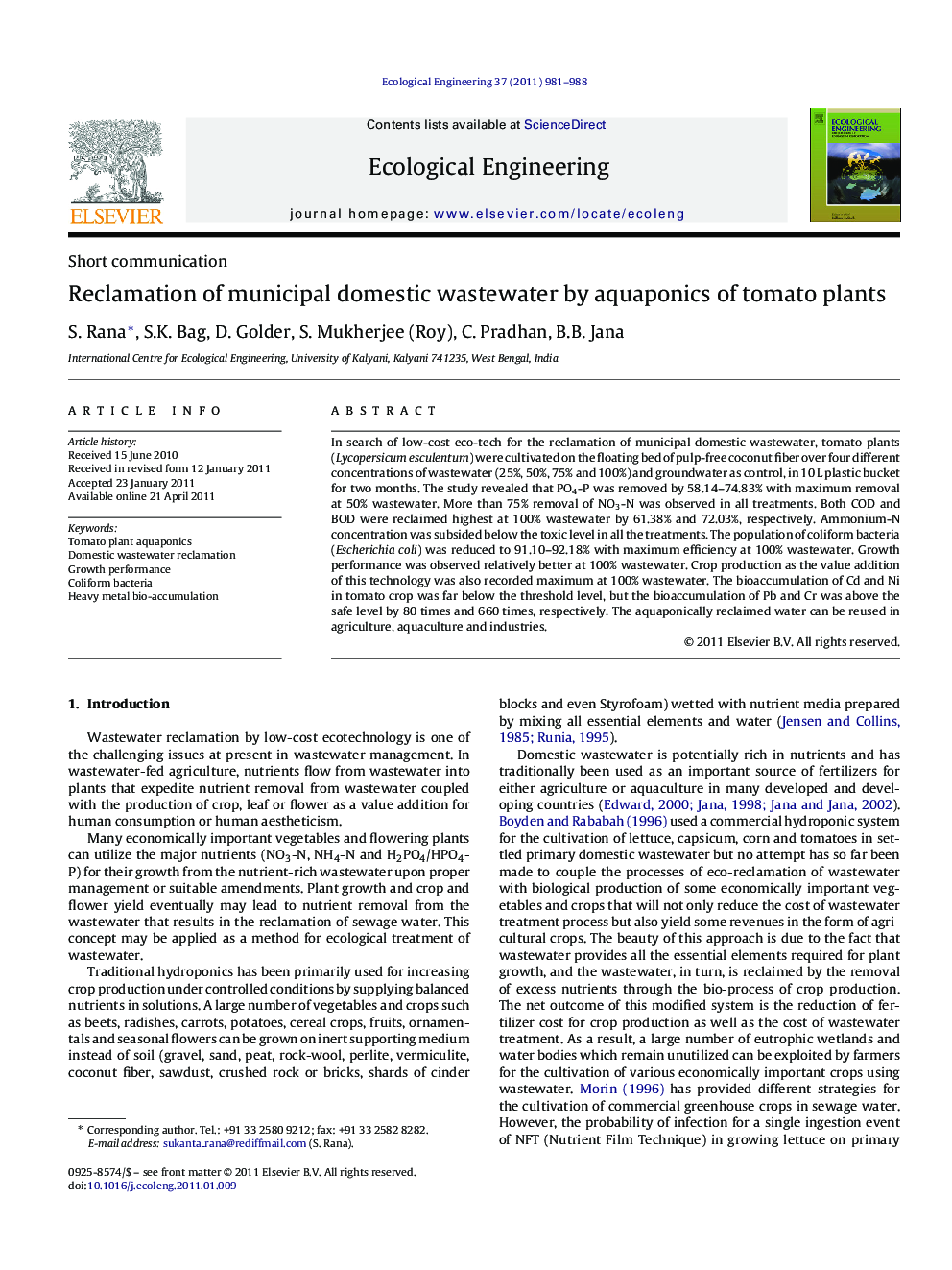| Article ID | Journal | Published Year | Pages | File Type |
|---|---|---|---|---|
| 4390331 | Ecological Engineering | 2011 | 8 Pages |
Abstract
In search of low-cost eco-tech for the reclamation of municipal domestic wastewater, tomato plants (Lycopersicum esculentum) were cultivated on the floating bed of pulp-free coconut fiber over four different concentrations of wastewater (25%, 50%, 75% and 100%) and groundwater as control, in 10Â L plastic bucket for two months. The study revealed that PO4-P was removed by 58.14-74.83% with maximum removal at 50% wastewater. More than 75% removal of NO3-N was observed in all treatments. Both COD and BOD were reclaimed highest at 100% wastewater by 61.38% and 72.03%, respectively. Ammonium-N concentration was subsided below the toxic level in all the treatments. The population of coliform bacteria (Escherichia coli) was reduced to 91.10-92.18% with maximum efficiency at 100% wastewater. Growth performance was observed relatively better at 100% wastewater. Crop production as the value addition of this technology was also recorded maximum at 100% wastewater. The bioaccumulation of Cd and Ni in tomato crop was far below the threshold level, but the bioaccumulation of Pb and Cr was above the safe level by 80 times and 660 times, respectively. The aquaponically reclaimed water can be reused in agriculture, aquaculture and industries.
Keywords
Related Topics
Life Sciences
Agricultural and Biological Sciences
Ecology, Evolution, Behavior and Systematics
Authors
S. Rana, S.K. Bag, D. Golder, S. Mukherjee (Roy), C. Pradhan, B.B. Jana,
